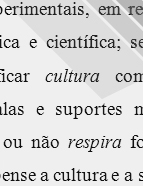

................................
In the preface, Sérgio thus condensed his work (Ens. I, pref. to the 2nd ed.), with some accuracy: ‘The paths of renewal that I initiated in our history consisted much less in the interpretations proposed and the analytical work with which I intended to support them, than in the very circumstance of wanting to interpret and understand, and in the new mentality with which I viewed things’. To him, in an asubstantialist view of culture, not exempt from some ontic inference, historical and cultural inquiry, like any form of knowledge, was not a blind stringing together of facts and dates, characters and works, but rather a Kantian ideation of the spirit between freely invented concepts. Sérgio’s central role – alongside Raul Proença, the thinker who best challenged the siege of democratic culture in the constrained Portuguese arena, and who himself was a piêce de résistence within the intellectual resistance to the Estado Novo – does not omit the assertive induction of the polemicist and the hall of mirrors in which his image is pre-emptively superimposed. The confrontation of Eduardo Lourenço's essayism (b. 1923) with the rationalism of the Sergian matrix would achieve the greatest development, largely shaping the research agenda, both before and after ‘the symbolic flight into the imperial imaginary’ (Portugal como destino [Portugal as destiny] 1999, p. 56): Heterodoxia [Heterodoxy](I, 1949) undeniably belongs to those who were referred to by Menéndez y Pelayo, contre coeur , on the Iberian soil as prone to mysticism, and who choose heresy over the monological aridity from which only the epics dare to escape or, like Lourenço, ‘mystics without faith’. The cycle initiated in O Labirinto da Saudade [The Labyrinth of Yearning](1978), a "mythical psychoanalysis of Portuguese destiny" (and the unfinished discussion it sparked, see J. Gil, Portugal, Hoje. O Medo de Existir, [Portugal, Today. The Fear of Existing], 2004), which was already announced in Heterodoxia II (1967), continued in Portugal como destino (1999) and A Nau de Ícaro [The Ship of Icarus] (1999). Meanwhile, in Nós e a Europa [We and Europe] (1988), O Esplendor do Caos [ The Splendour of Chaos] (1998), and A Europa Desencantada [Disenchanted Europe](1994), Lourenço debates constructive paths for the community amid the ruins of its prophetic mythology.
